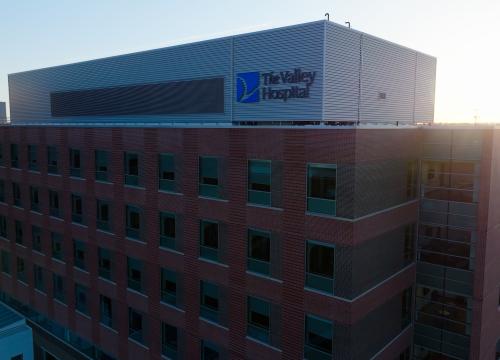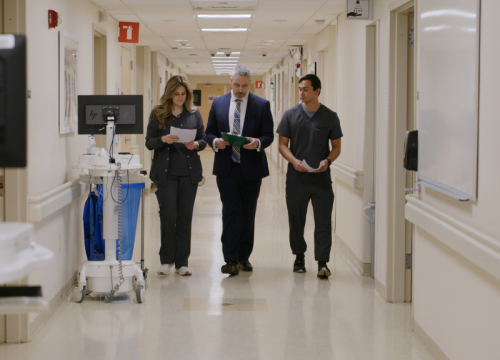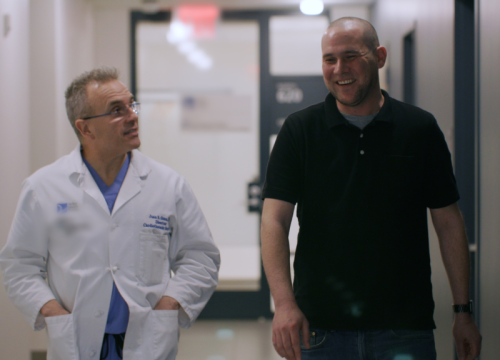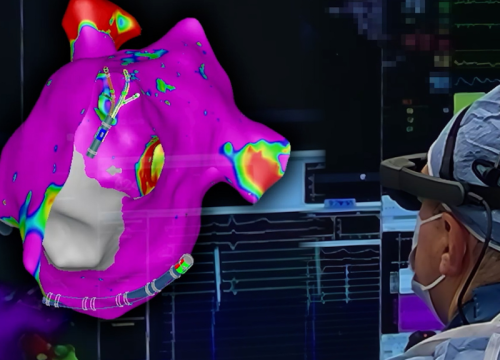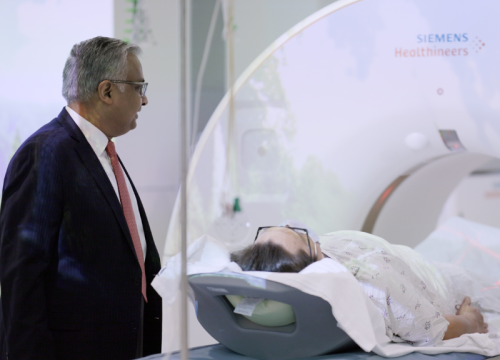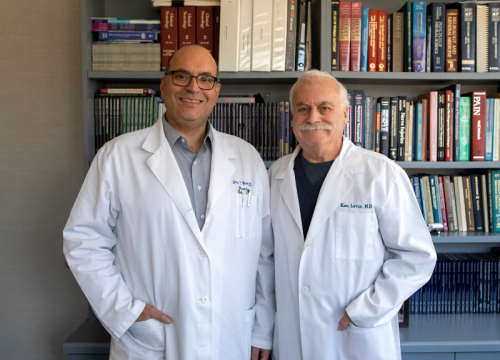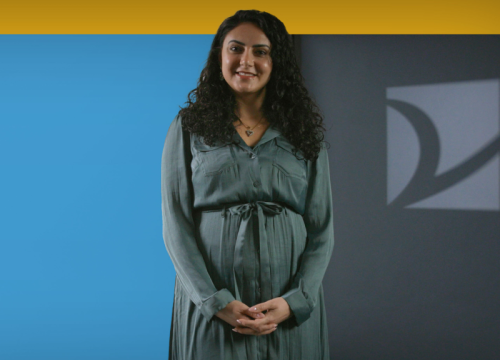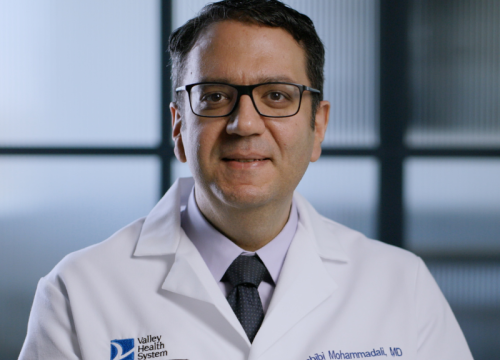Finding out that you have a brain tumor can feel scary and overwhelming. But today’s brain tumor treatments are more effective than ever before, and you’ll find them right here in Northern New Jersey.
Experts from Valley’s brain tumor program diagnose and treat all types of brain tumors, including:
- Cancerous (malignant) tumors
- Noncancerous (benign) tumors
- Tumors that start in the brain (primary brain tumors)
- Tumors caused by cancer spreading to the brain from somewhere else in your body (metastatic brain tumors)
We also provide second opinions to people with rare or complex brain tumors who thought they were out of options.
Whenever possible, our brain tumor experts perform minimally invasive brain surgery. These procedures produce excellent results with fewer complications, less pain, a shorter hospital stay and a faster recovery. Some tumors are even treatable with a noninvasive option: Gamma Knife radiosurgery.
Brain Tumor Types
There are more than 100 types of brain tumors, each named after the type of cell it grows in. For example, tumors called gliomas start in a type of brain cell called glial cells.
Other kinds of brain tumors include:
- Acoustic neuroma (vestibular schwannoma)
- Astrocytoma
- Craniopharyngioma
- Ependymoma
- Glioblastoma
- Meningioma
- Oligodendroglioma
- Pineal tumors
- Pituitary tumors
It’s important to seek care from specialists — like those at Valley — who are familiar with each type of brain tumor. That’s because each type can cause different symptoms and require different treatments.
Brain Tumor Symptoms
Brain tumors can cause symptoms when they press against or damage healthy brain tissue, especially if that tissue contains nerves that control movement, memory, speech, and other abilities.
These symptoms include:
- Balance problems
- Forgetfulness
- Headaches
- Mood or personality changes
- Nausea or vomiting
- Numbness or tingling in the arms or legs
- Seizures
- Trouble speaking
- Trouble walking
- Vision problems
Brain Tumor Care at Valley
When you turn to Valley for brain tumor care, you’ll receive the latest research-driven treatments, along with plenty of guidance and support.
The treatments you’ll need depend on several factors, including:
- The size, shape, and location of your brain tumor. If your tumor is located in a hard-to-reach area, we may be able to use minimally invasive techniques to remove it through small incisions.
- Whether your tumor is cancerous or noncancerous. If your tumor is malignant or metastatic, our noninvasive Gamma Knife technology can be a highly effective option. And it’s available close to home: Valley is one of just a few health systems in the region equipped with Gamma Knife.
- Whether your tumor is causing symptoms. If you’re not having symptoms, your team may recommend close monitoring with frequent scans rather than immediate treatment.
While many brain tumors can be treated with minimally invasive approaches, some are best treated with traditional surgery. Your team will walk you through your options, clearly explaining each course of treatment and how it works.
Together, you’ll decide on a customized care plan that incorporates your treatment goals and preferences.
Because your care plan may include more than one type of treatment — and visits with multiple providers — you’ll work closely with a nurse navigator. Your nurse navigator can help coordinate your appointments, answer your questions and connect you to various hospital or community resources.
These resources may include:
Brain Tumor Treatments
Valley offers all the treatments you might need to shrink, destroy or remove your brain tumor. And whenever possible, we use noninvasive or minimally invasive approaches that are easier on you while achieving excellent outcomes. Our toolkit includes:
- Medications: Certain drugs can slow or stop the spread of cancerous brain tumors. These include targeted therapy (drugs that help stop cancer cells from multiplying) and immunotherapy (drugs that help your immune system find and attack cancer cells).
- Fractionated radiotherapy: In some cases, we use radiation therapy to treat the entire brain at once. Whole-brain radiation is usually reserved for people with metastatic brain tumors.
- Gamma Knife radiosurgery: Also known as stereotactic radiosurgery, this noninvasive treatment sends targeted beams of radiation into your brain. Compared to whole-brain radiation, its pinpoint precision spares surrounding healthy tissue, resulting in significantly fewer side effects (and fewer total treatment sessions).
- Brain surgery: Valley’s neurosurgeons are trained to perform all types of surgery, including minimally invasive surgery, for all types of brain tumors. Our goal is to remove as much of the tumor as possible without harming your ability to see, move, speak or swallow.
Why Choose Valley for Brain Tumor Treatment
- Complete, convenient care: When you choose Valley for brain tumor treatment, you have access to a broad range of services that support your ongoing treatments or recovery, close to home. These services include rehabilitation, home care, support groups and more.
- Less-invasive surgery options: Whenever possible, our brain surgeons employ minimally invasive techniques that use tiny incisions — or no incisions at all. For example, we offer an innovative minimally invasive pituitary tumor surgery that lets us remove pituitary tumors through the nose. Benefits of minimally invasive brain surgery include a lower risk of complications and shorter recovery time. Most people can go home the same day or the next.
- Fluorescein-guided brain tumor surgery: We can give you a harmless liquid solution that causes your brain tumor to light up when viewed on a special imaging screen. This makes it easier for your surgeon to see the size, shape and location of the tumor, along with any nearby critical structures they should avoid.
- Enhanced recovery: If you need help improving or regaining certain abilities caused by your brain tumor or your treatments, we can help. For example, our physical therapists can help you improve strength, balance or mobility. And our speech therapists can help you overcome speech or swallowing problems.
- Neuroscience intensive care unit (ICU): Our neuroscience ICU team cares only for patients who are recovering from brain surgery or have serious neurological illnesses. All of these physicians and nurses have specialized training in brain tumor care and critical care.



